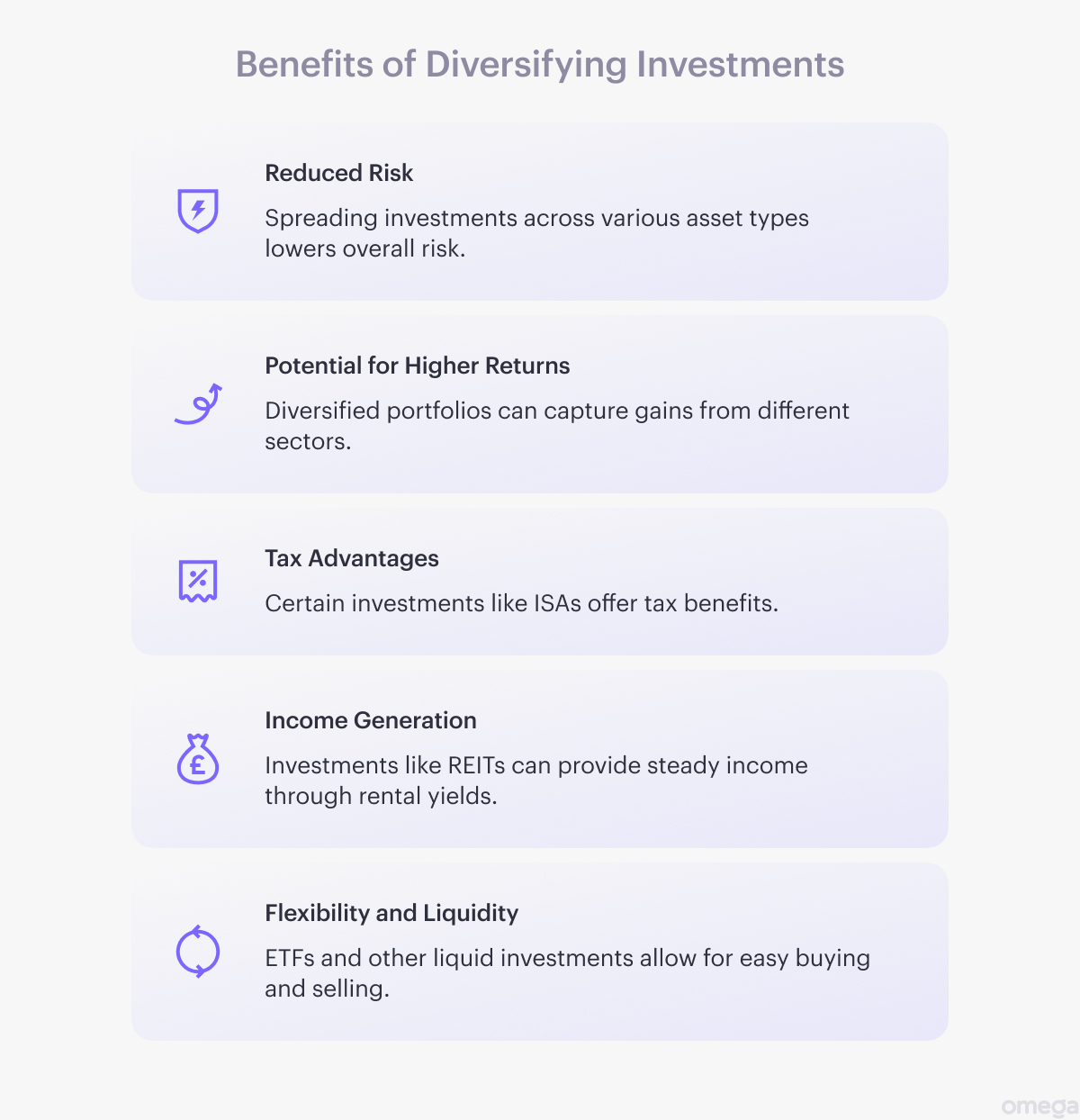Diversification is key. No matter your background, business, or industry, it is a wise idea to be open to investing in the UK. While there are numerous ways to invest, from government bonds to the latest cryptocurrency, we have decided to do the groundwork so you can choose from a pool of the top investment opportunities.

While there is no such thing as the best investment, we have listed options historically providing significant returns with careful risk management in mind.
Individual Savings Accounts (ISAs)
If not the most popular type of investment in the United Kingdom, the ISA is among the most common. But why is that, you may ask? The main factor that draws most people in is the tax savings you’ll get.
On top of having an investment amount allowance of up to £20,000 each year (as of the 2023-2024 tax year), you also don’t have to pay a single penny for taxes on income, interest or capital gains from investments and cash as long as they are held under an ISA. When the tax year ends (April 6 to April 5), you’ll get to hold on to your savings tax-free, given that you kept the money in your ISAs.
Note: Each tax year starts on April 6 and ends on April 5 of the following year.
U.K. Government Bonds (also known as Gilts)
If you are a conservative or risk-averse investor, this may be the safest option in the market. In fact, the British government backs these. How does it work?
They pay you a fixed interest rate (also called a coupon) twice annually until the bonds mature, and only then do you (as the investor) receive the bond’s face value or the payment amount the issuer promised you. Each bond has a term, generally between a couple of years and decades, so ensure you decide carefully.
Investment Funds
Also widely known as mutual funds, these are where you and other fellow investors pool money into various assets, such as bonds, shares, and property. Think of it as grabbing a tiny slice of different pizzas and combining them together (your investment portfolio).
A significant advantage of this shared approach is to mitigate risk by diversifying across various assets at a more reasonable price rather than buying those investments individually. There are two types of mutual funds in the UK that you can choose from:
- Active funds: These are where your investments are essentially on autopilot as professional fund managers manage them. For the service provided, they usually charge a higher fee.
- Index funds (Tracker funds): This fund type strives to match the performance of a specific market index (e.g., the FTSE 100) rather than try to beat it. From a cost-effectiveness perspective, index funds are your go-to for diversification.
Exchange-traded funds (ETFs)
You may have heard of the term occasionally, for a good reason—it’s one of the most flexible and cost-effective types of investment. How does it work? ETFs are a lot like mutual funds, but instead of being mostly managed by people, they are managed by an algorithm that keeps track of one whole economic sector or index.
An example of this is the infamous S&P 500 in the US (which tracks 500 of the largest public companies in the US) or the iShares Core FTSE 100 (which tracks 100 of the UK’s largest listed companies). These funds can be bought or sold as if you were to buy or sell an individual stock as long as you do so during trading days.
Real Estate Investment Trusts (REITs)
Instead of thinking of it as owning a property, consider it an indirect investment in the UK property you don’t need to own directly. This entity usually enables you to own and operate income-making properties. The invested real estate can range from commercial properties (e.g., offices) to residential properties.
Though it may sound like a no-brainer, like any kind of investment, it is imperative to be aware of risks, which in this case involves potential decreases in property value and rental income.
It Is Time To Do Business In The United Kingdom
Now that you have narrowed down your options for investing, it is important to know your preferences and do your own research before diving into a new investment venture. There is no guarantee of whether your investment will go up or down both in the short and long term, but that’s where risk management through professional consults bridges the gap.
Whether you need help setting up a business account or registering a company in the UK, Omega is here to help. We take pride in helping businesses like yours make the best decisions, whether navigating through jurisdictions, filing taxes or managing assets – our platform offers direct access to third-party experts at your service.
Disclaimer




